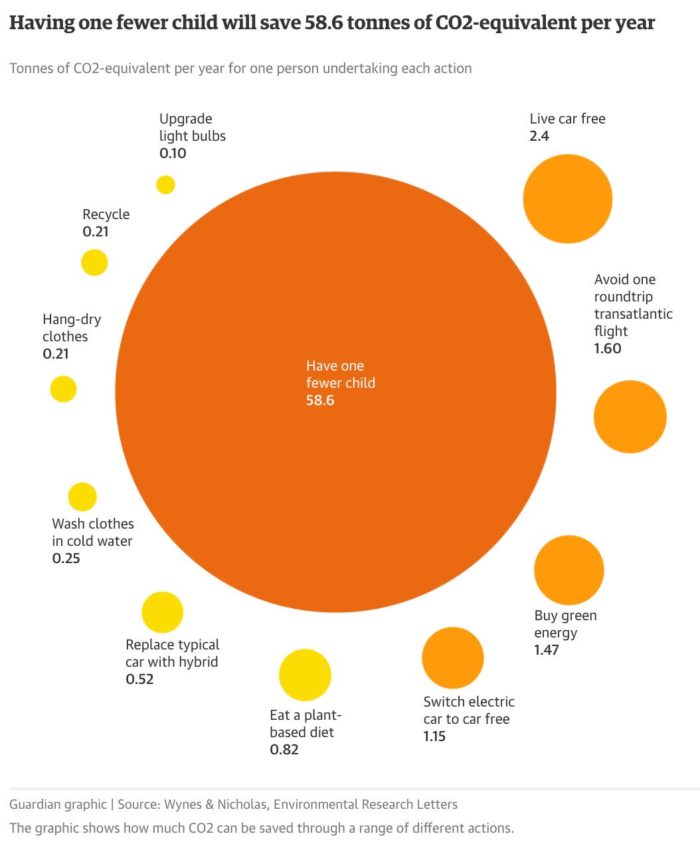This graphic tempts you to think having fewer children is the best you can do, dwarfing not flying or going vegetarian, but I’ll describe below how you can do a lot more.

More than personal actions
Everyone gets that one person’s actions round to zero on a global scale. I agree. I act consistent with my values as a matter of integrity. Making a difference on a global scale comes from leading others.
Leading people
You can’t reduce your number of children below how many you have now, but you can influence others to smaller families. Learning and practicing leadership skills, besides improving your life, enable you to support others to live more by their values. If their values align so they want a smaller family but wouldn’t without your support, you can be responsible for conserving far more than solo.
Leading cultures
Beyond leading a few people directly, you can influence culture. Not everyone reaches levels to change culture, but you can. I’m working on it in my life.
An example: American citizens are having children below replacement levels, but culturally we value material growth, meaning GDP growth and therefore population growth. We import labor—that is, promote immigration and therefore promote other nations growing. We know offshoring a factory doesn’t reduce pollution, it moves it. Offshoring babymaking doesn’t reduce population growth, it moves it. It also creates incentive to keep other places poor and miserable so people want to move here.
If we expect to stop growing ever, the earlier, the safer and easier. We can change cultural values, as other cultures have done, to value population levels below what Earth can sustain.
For clean air, land, and water, learn to lead
Nearly everyone I see and know follows others. Learning to lead improves your life, relationships, income, and everything. Moreover, it enables you to make the biggest difference possible on sustainability.
If interested, ask me how. My students and clients tell me I teach and coach effectively.
Influencing Americans
The chart below separates the dots above by country. It takes a minute to figure out, but it shows Americans having fewer children eclipses everything else.

